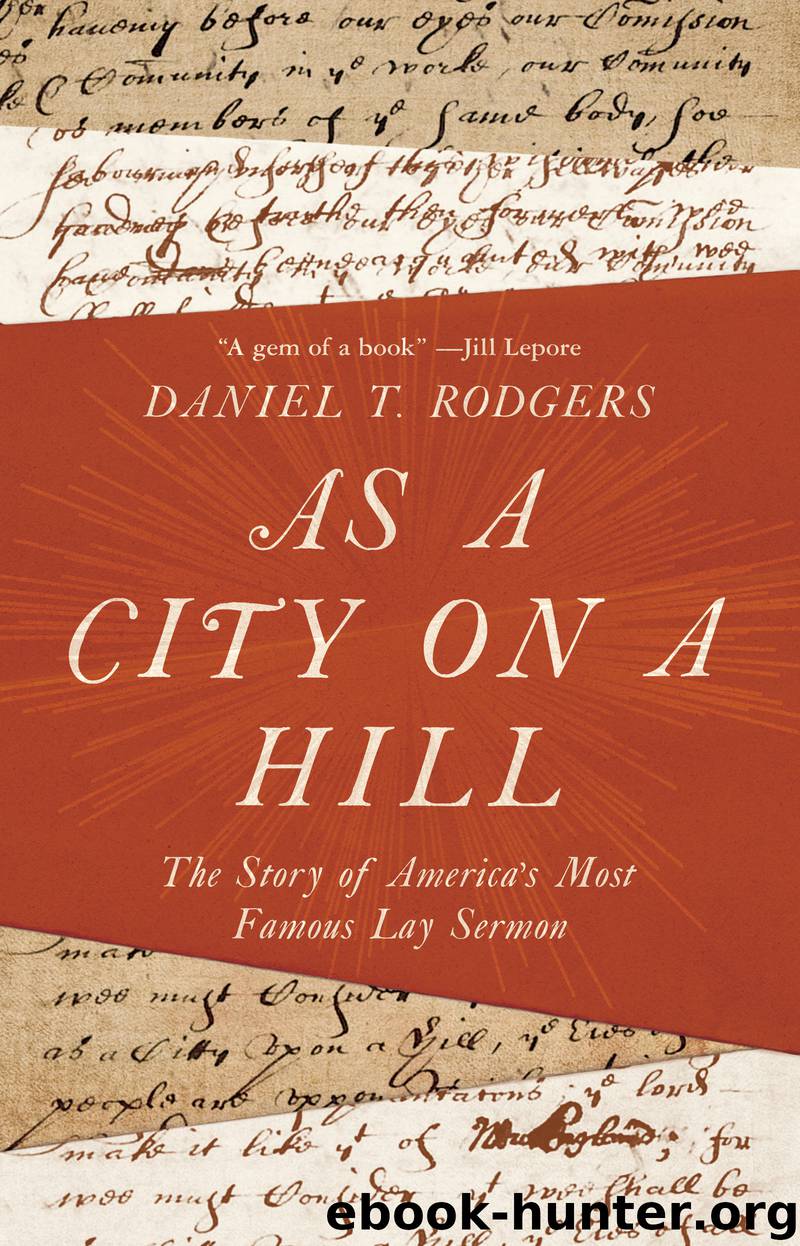As a City on a Hill by Rodgers Daniel T

Author:Rodgers, Daniel T.
Language: eng
Format: epub
Publisher: Princeton University Press
CHAPTER 15
Puritanism in an Existentialist Key
THE DECADES THAT FINALLY saw the release of the Puritans from the embarrassments of their past were the crisis decades of the Depression and war. And the figure who, more than any other, accomplished this came from Chicago, not Boston. Though he was a commanding presence in Harvard’s lecture halls for thirty years, Perry Miller never imagined that he fit into New England manners or Boston civic pride. He entered the field of Puritan studies as an outsider, writing books that initially bewildered his fellow historians and literature scholars. He cultivated a sense of heroic intellectualism and existentialist drama that roiled many of his academic peers. But by his death in 1963, he had written the Puritans into the core story of the development of the “American mind” and had begun, for the first time, to single out Winthrop’s “Model of Christian Charity” as one of the central statements in its unfolding.1
Perry Miller was a man of poses as well as a scholar of enormous erudition and writerly force. Some of what he said about his own past worked far better as story than as literal truth. Born into a physician’s family on Chicago’s West Side, he dropped out of the University of Chicago in 1923 to try to soak up some of the real-life experience he felt he had missed by being too young to enlist in World War I. He acted for a while with a theater company in Paterson, New Jersey, wrote a bit for pulp magazines, and then enlisted as a merchant sailor.2 It was in Africa, unloading American oil drums for export to the Congo, he would later claim, that he caught a “vision” of his life’s task: “the mission of expounding what I took to be the innermost propulsion of the United States.” There was “a kind of truth” in that story, his widow would patiently explain, mixed with a great deal of fiction—though for decades historians preferred to take Miller’s fib as literal fact.3 What he did decide in the Congo was to go back to college, then to graduate school, and finally to immerse himself in the literature and history of early America.
There was a kind of truth, and a kind of fiction as well, to his subsequent claim that he went on to read every piece of writing produced in colonial New England. But he did read massively across three centuries of American thought and literature. He brought an insatiable appetite to the history of American ideas and a passion for making ideas the fulcrum point of history itself. Pious, disciplined John Winthrop and the gifted, unruly, atheist historian who began Winthrop’s incorporation into the center of American history were an oddly matched couple. But between Winthrop’s heroic sense of acting on a commission from God and Miller’s sense of the heroic act by which Winthrop’s Puritans had held up the assumptions of that commission by sheer force of will there turned out to be a powerful synergy.
Download
This site does not store any files on its server. We only index and link to content provided by other sites. Please contact the content providers to delete copyright contents if any and email us, we'll remove relevant links or contents immediately.
| Elections & Political Process | Ideologies & Doctrines |
| International & World Politics | Political Science |
| Public Affairs & Policy | Specific Topics |
| United States |
The Secret History by Donna Tartt(19085)
The Social Justice Warrior Handbook by Lisa De Pasquale(12190)
Thirteen Reasons Why by Jay Asher(8909)
This Is How You Lose Her by Junot Diaz(6885)
Weapons of Math Destruction by Cathy O'Neil(6279)
Zero to One by Peter Thiel(5801)
Beartown by Fredrik Backman(5751)
The Myth of the Strong Leader by Archie Brown(5507)
The Fire Next Time by James Baldwin(5442)
How Democracies Die by Steven Levitsky & Daniel Ziblatt(5218)
Promise Me, Dad by Joe Biden(5153)
Stone's Rules by Roger Stone(5087)
A Higher Loyalty: Truth, Lies, and Leadership by James Comey(4960)
100 Deadly Skills by Clint Emerson(4924)
Rise and Kill First by Ronen Bergman(4788)
Secrecy World by Jake Bernstein(4752)
The David Icke Guide to the Global Conspiracy (and how to end it) by David Icke(4717)
The Farm by Tom Rob Smith(4507)
The Doomsday Machine by Daniel Ellsberg(4490)
